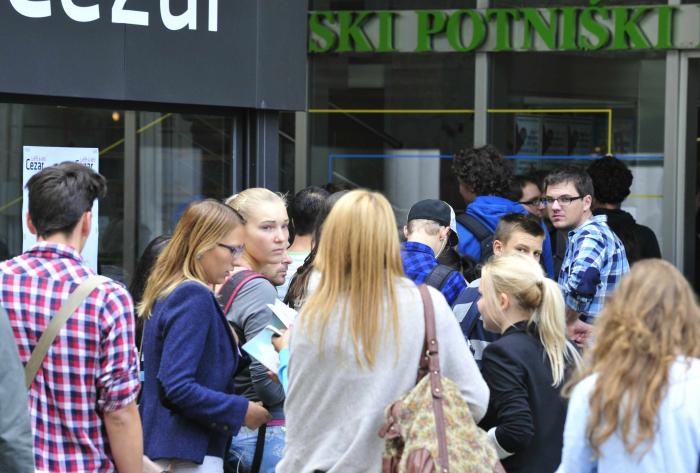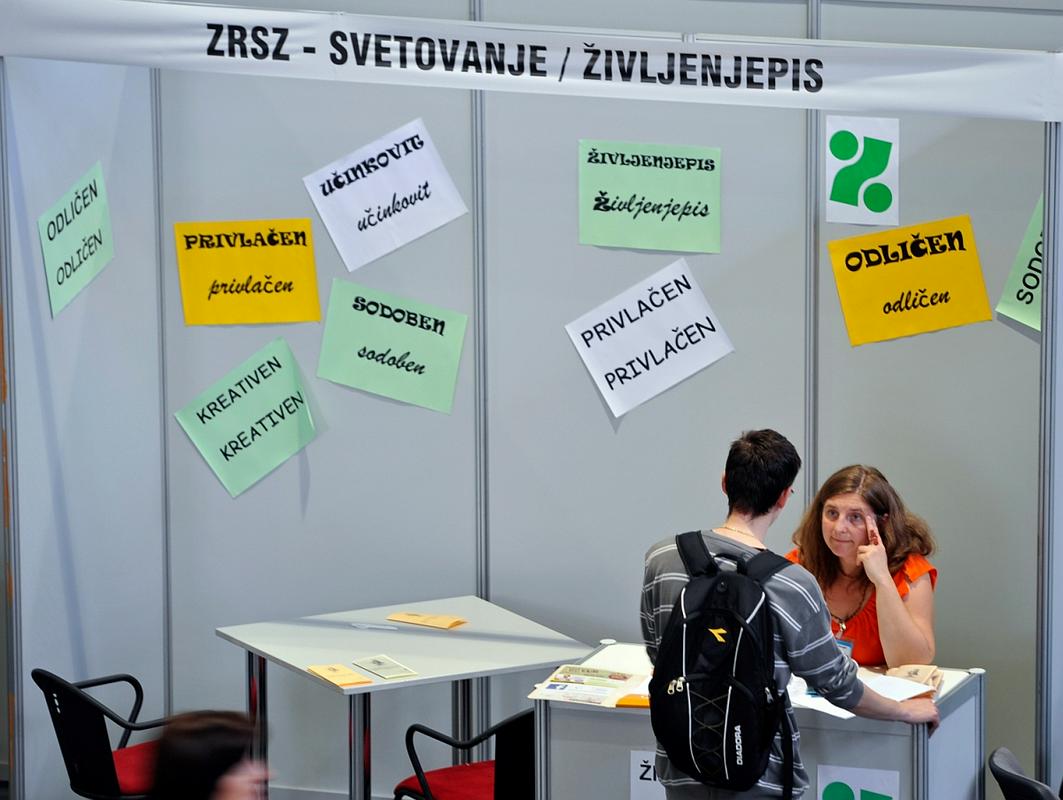

The decisions of pupils finishing elementary or secondary schools on where to continue their study are, without any doubt, influenced by the present situation at the Slovenian labour market. Today's school information day will give them the opportunity to get acquainted with the chosen schools, grammar schools, and faculties. The final decision is however usually influenced by parents and friends.
"Children get most information from parents, teachers and friends. But we would like to advise them that such decisions should not be taken lightly; they should decide by themselves, as they themselves will be responsible for the decision they make regarding they study, and their satisfaction with their choice. They have to accept the responsibility, even at the age of 14 or 15," says Aleksandra Igličar Čepon, career advisor at the employment office. She also advises that teenagers should establish what they are most interested in, their capabilities, their motivations, and on which areas they excel, before making the final decision.
On the other hand they should be well acquainted with schools, and vocations. "Elementary schools present different vocations already in the lower classes, and presentations continue through higher classes as well. They cooperate with secondary schools, and vocation markets are being organized. Pupils of secondary schools pay visits to elementary schools and introduce their schools," Igličar Čepon explains. In her opinion the programme of Slovenian schools includes adequate presentation of vocations.
Although the youth do know different vocations well enough, the decision on where to continue their schooling is rather difficult, also due to the quickly changing conditions on the Slovenian labour market. During the middle of the previous decade there was a lot of work for architects, designers, constructors, financiers, real estate agents, primarily due to the stock market and real estate bubble, presently those are struggling to survive. Which vocations are presently most sought in Slovenia?
The most promising are energetics, chemistry, pharmacy…
"Presently the most promising sectors in Slovenia are energetics, renewable sources, green energy, chemistry, pharmacy, metalworking, electric industry, mechatronics, informational technology, tourism, hospitality industry… But the situation is expected to change before those starting now complete their education. In four or five years the situation will most certainly be different. Career advisors are trying to encourage young people to connect with potential employers early, while in secondary school and later during study at faculty, especially where they perform their internship, or work during holidays. Early connections with potential employers will make looking for a job after completing their schooling easier," she advises.
Presently the employment office reports that the greatest problems are facing those who must perform obligatory internship required for work in health care and education, as the public sector has only a limited number of internships available. Architects, designers, journalists and translators face problems as well, as for them only contractual jobs are available, or the employer demands they perform the work as private entrepreneurs.
The fact that not even those with the highest education face a number of problems seems to reflect on decisions of the elementary school pupils regarding their future. Igličar Čepon says that according to the data collected from ninth grade pupils on their intentions for further schooling 70%of the pupils wish to continue their education at three- or four-year vocational schools, which is according to her encouraging. Only 30% of pupils are considering grammar schools. "It is very positive that the young people consider vocational education as a good possibility, and that it is possible to continue to study also after completing a vocational school. The education might last a bit longer, but you can still reach the desired goal," she emphasized.

































































